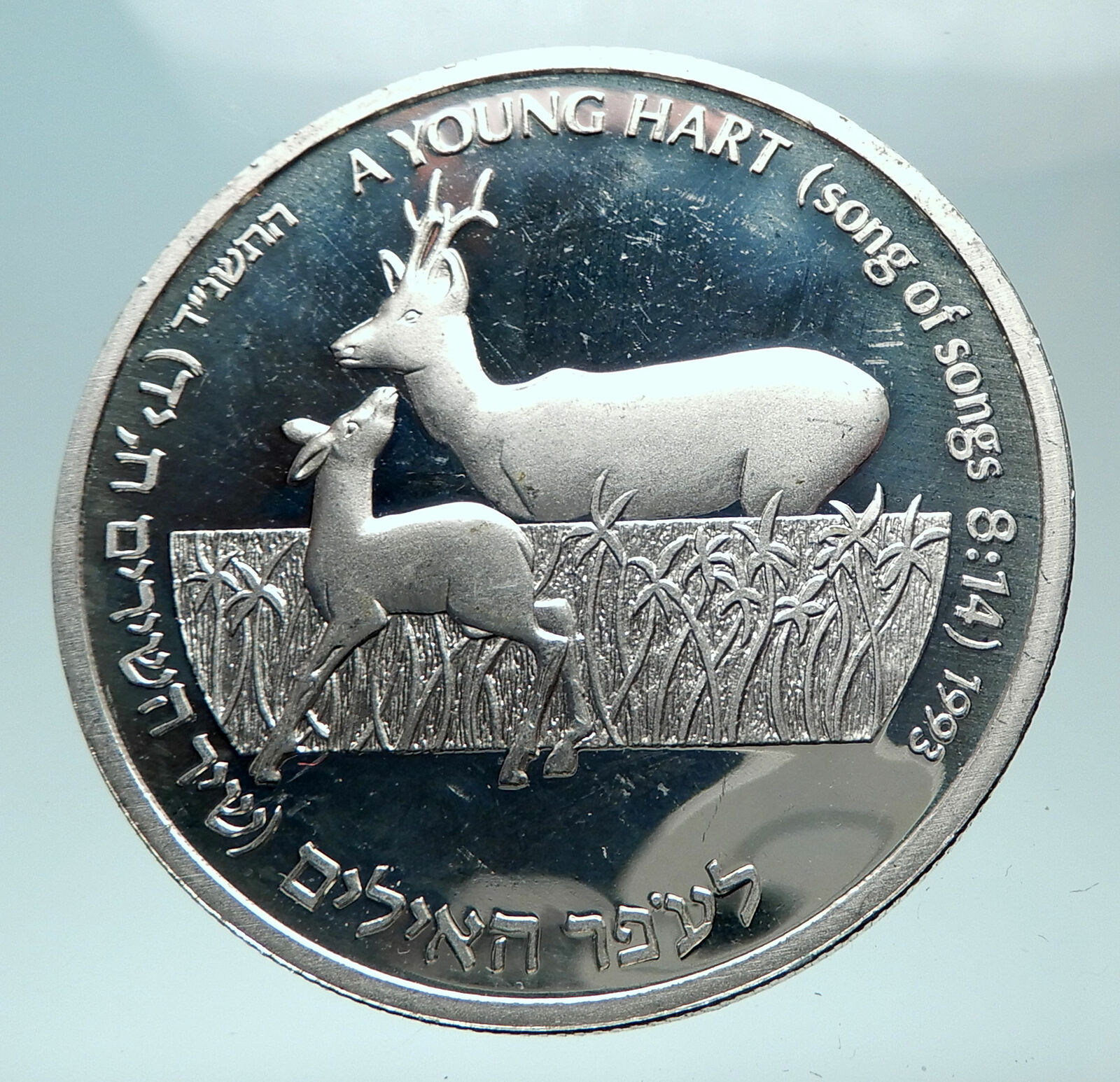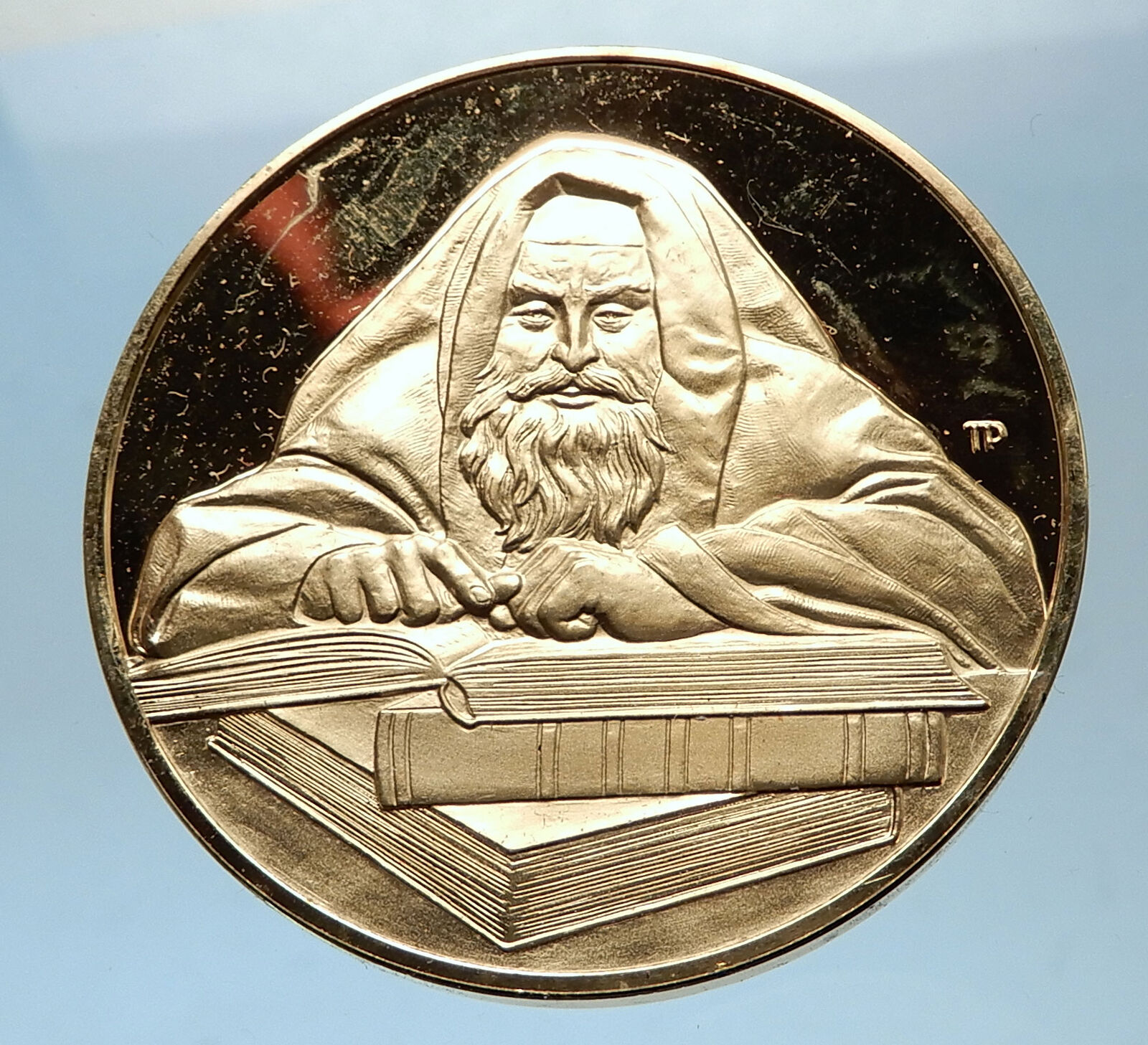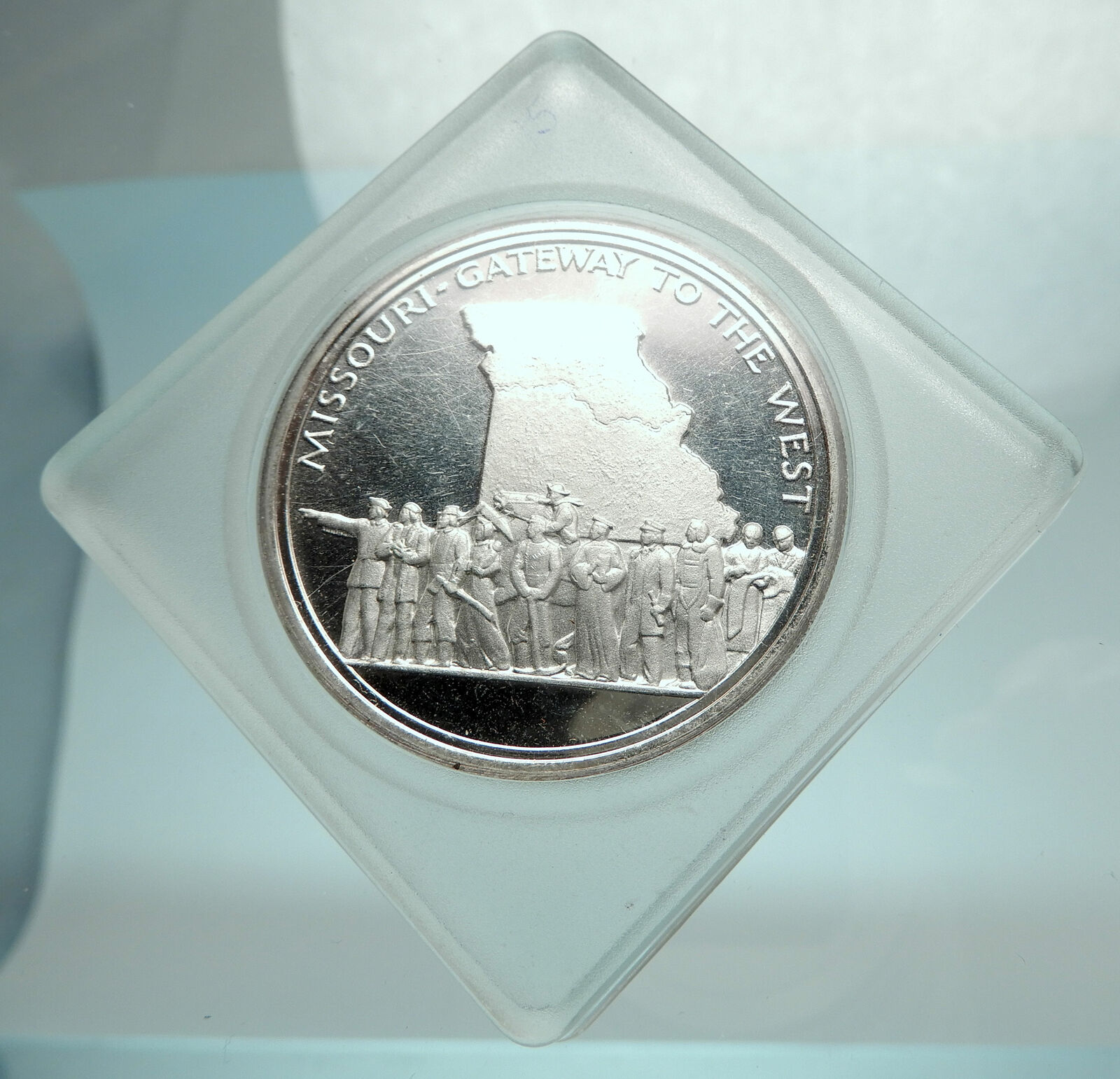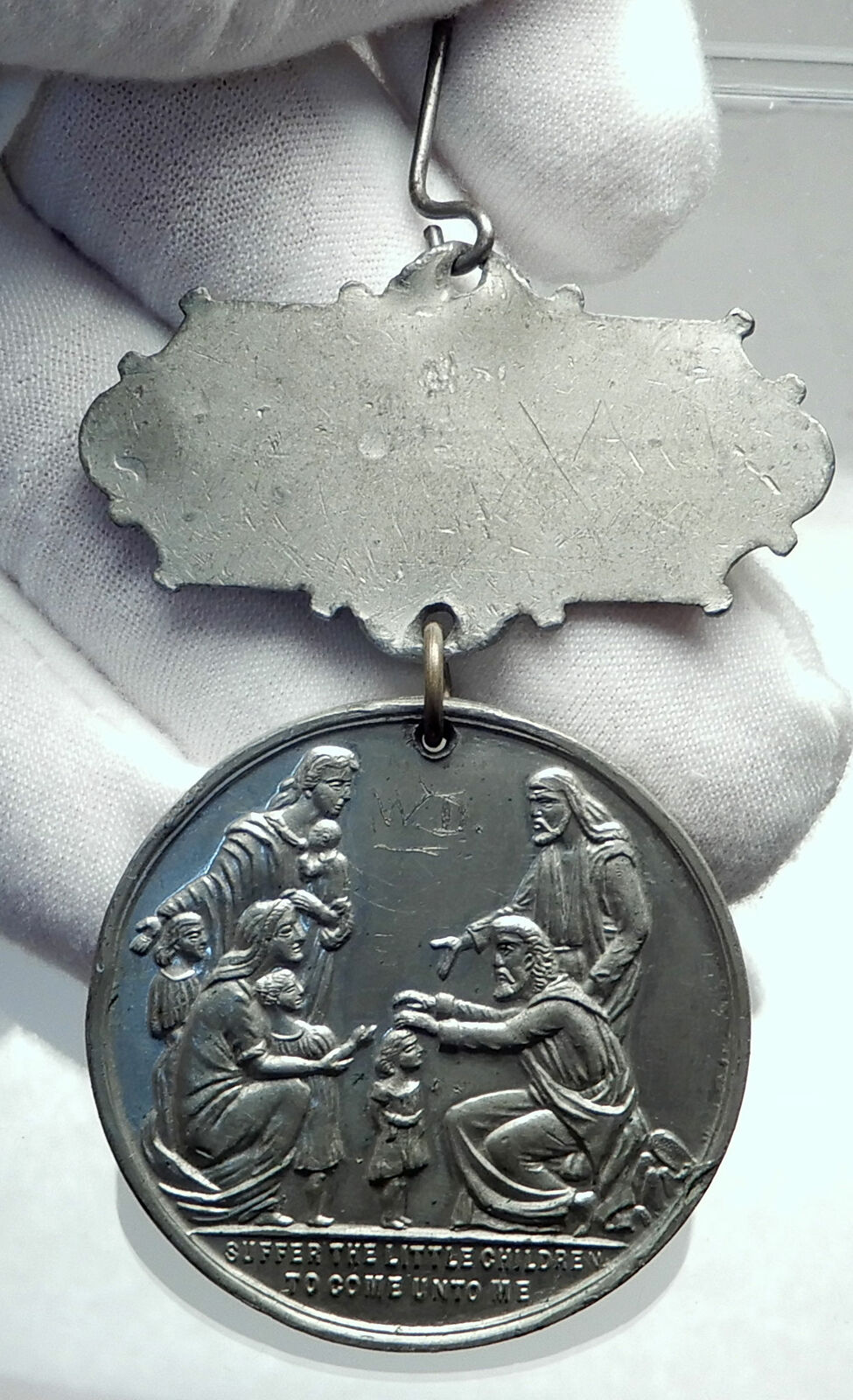|
France
François-Adrien Boieldieu
1826 Bronze Medal 45mm (39.97 grams)
HONNEUR AU TALENT. BARRE BENTOWSKI LE CALIFE A DAME BLANCHE, Francois facing left, lyre and scroll below.
A FR.COIS AD.EN. BOIELDIEU NE A ROUEN LE XV DECEMBRE MDCCLXXV MDCCCXXVI, Two-type wreath below Coat-of-arms with castle atop.
You are bidding on the exact item pictured, provided with a Certificate of Authenticity and Lifetime Guarantee of Authenticity.
 François-Adrien Boieldieu (16 December 1775 – 8 October 1834) was a French composer, mainly of operas, often called “the French Mozart”. François-Adrien Boieldieu (16 December 1775 – 8 October 1834) was a French composer, mainly of operas, often called “the French Mozart”.
Born during the Ancien Régime in Rouen, François-Adrien Boieldieu received his musical education first from the choirmaster and then from the organist of the local cathedral. During the Reign of Terror, Rouen was one of the few towns to maintain a significant musical life and in 1793 a series of concerts was organised featuring the celebrated violinist Pierre Rode and the tenor Pierre-Jean Garat. It was during this time that Boieldieu composed his earliest works to texts written by his father (La fille coupable in 1793, followed by Rosalie et Mirza in 1795). They brought him immediate success.
During the Revolutionary period, Boieldieu left for Paris and wisely started work as a piano tuner. At this time, the Opéra-Comique was the only theatre to offer opportunities for the hybrid works of the same name, close to classic opera, but containing spoken dialogue. The most typical work of the genre was Luigi Cherubini’s Médée (1797). Opéra-comique, traditionally performed at the Salle Favart, was also staged at the Théâtre de Monsieur from 1789. In 1791, the company set up home in a new theatre, the Théâtre Feydeau, previously reserved for the troupe of the opera buffa. Over the course of ten years, the Favart and the Feydeau companies were rivals, the Favart beefing up its repertoire of patriotic spectacles and presenting the lighter works of Étienne Méhul, the Feydeau offering the heroic dramas of Cherubini or Jean-François Le Sueur. In 1797, Boieldieu offered the Feydeau La famille suisse and L’heureuse nouvelle. In 1798, he presented the Favart with Zoraime et Zulmare, which brought him extraordinary success.
The spiritual heir of André Grétry, Boieldieu focused on melodies which avoided too much ornamentation, set to light but intelligent orchestration. Hector Berlioz described his music as possessing “a pleasing and tasteful Parisian elegance”. In 1800, he scored a veritable triumph with Le calife de Bagdad (The Caliph of Baghdad). In 1804, following the breakdown of his marriage to the dancer Clotilde Mafleurai, he set off for Saint Petersburg to take up the post of court composer to the tsar, where he stayed until 1810. There he composed nine operas, including Aline, reine de Golconde (1804) and Les voitures versées (1808). On his return to France he won back Parisian audiences with La jeune femme en colère (1811), Jean de Paris (1812), Le nouveau seigneur du village (1813) and a dozen other works.
In 1825 he produced his masterpiece, La dame blanche (revived in the Salle Favart in 1997 and recorded by the conductor Marc Minkowski). Unusual for the time, La dame blanche was based on episodes from two novels by Walter Scott. The libretto by Eugène Scribe is built around the theme of the long lost child fortunately recognized at a moment of peril. The style of the opera influenced Lucia di Lammermoor, I puritani and La jolie fille de Perth. La dame blanche was one of the first attempts to introduce the fantastic into opera.
  France, officially the French Republic (French: République française), is a sovereign state comprising territory in western Europe and several overseas regions and territories. The European part of France, called Metropolitan France, extends from the Mediterranean Sea to the English Channel and the North Sea, and from the Rhine to the Atlantic Ocean. France spans 640,679 square kilometres (247,368 sq mi) and has a total population of 67 million. It is a unitary semi-presidential republic with the capital in Paris, the country’s largest city and main cultural and commercial centre. The Constitution of France establishes the state as secular and democratic, with its sovereignty derived from the people. France, officially the French Republic (French: République française), is a sovereign state comprising territory in western Europe and several overseas regions and territories. The European part of France, called Metropolitan France, extends from the Mediterranean Sea to the English Channel and the North Sea, and from the Rhine to the Atlantic Ocean. France spans 640,679 square kilometres (247,368 sq mi) and has a total population of 67 million. It is a unitary semi-presidential republic with the capital in Paris, the country’s largest city and main cultural and commercial centre. The Constitution of France establishes the state as secular and democratic, with its sovereignty derived from the people.
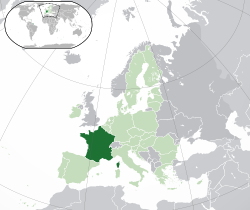
During the Iron Age, what is now Metropolitan France was inhabited by the Gauls, a Celtic people. The Gauls were conquered in 51 BC by the Roman Empire, which held Gaul until 486. The Gallo-Romans faced raids and migration from the Germanic Franks, who dominated the region for hundreds of years, eventually creating the medieval Kingdom of France. France emerged as a major European power in the Late Middle Ages, with its victory in the Hundred Years’ War (1337 to 1453) strengthening French state-building and paving the way for a future centralized absolute monarchy. During the Renaissance, France experienced a vast cultural development and established the beginning of a global colonial empire. The 16th century was dominated by religious civil wars between Catholics and Protestants (Huguenots).
France became Europe’s dominant cultural, political, and military power under Louis XIV. French philosophers played a key role in the Age of Enlightenment during the 18th century. In 1778, France became the first and the main ally of the new United States in the American Revolutionary War. In the late 18th century, the absolute monarchy was overthrown in the French Revolution. Among its legacies was the Declaration of the Rights of Man and of the Citizen, one of the earliest documents on human rights, which expresses the nation’s ideals to this day. France became one of modern history’s earliest republics until Napoleon took power and launched the First French Empire in 1804. Fighting against a complex set of coalitions during the Napoleonic Wars, he dominated European affairs for over a decade and had a long-lasting impact on Western culture. Following the collapse of the Empire, France endured a tumultuous succession of governments: the monarchy was restored, it was replaced in 1830 by a constitutional monarchy, then briefly by a Second Republic, and then by a Second Empire, until a more lasting French Third Republic was established in 1870. By the 1905 law, France adopted a strict form of secularism, called laïcité, which has become an important federative principle in the modern French society.
France reached its territorial height during the 19th and early 20th centuries, when it ultimately possessed the second-largest colonial empire in the world. In World War I, France was one of the main winners as part of the Triple Entente alliance fighting against the Central Powers. France was also one of the Allied Powers in World War II, but came under occupation by the Axis Powers in 1940. Following liberation in 1944, a Fourth Republic was established and later dissolved in the course of the Algerian War. The Fifth Republic, led by Charles de Gaulle, was formed in 1958 and remains to this day. Following World War II, most of the empire became decolonized.
Throughout its long history, France has been a leading global center of culture, making significant contributions to art, science, and philosophy. It hosts Europe’s third-largest number of cultural UNESCO World Heritage Sites (after Italy and Spain) and receives around 83 million foreign tourists annually, the most of any country in the world. France remains a great power with significant cultural, economic, military, and political influence. It is a developed country with the world’s sixth-largest economy by nominal GDP and eight-largest by purchasing power parity. According to Credit Suisse, France is the fourth wealthiest nation in the world in terms of aggregate household wealth. It also possesses the world’s second-largest exclusive economic zone (EEZ), covering 11,035,000 square kilometres (4,261,000 sq mi).
French citizens enjoy a high standard of living, and the country performs well in international rankings of education, health care, life expectancy, civil liberties, and human development. France is a founding member of the United Nations, where it serves as one of the five permanent members of the UN Security Council. It is a member of the Group of 7, North Atlantic Treaty Organization (NATO), Organisation for Economic Co-operation and Development (OECD), the World Trade Organization (WTO), and La Francophonie. France is a founding and leading member state of the European Union (EU).
|





 François-Adrien Boieldieu (16 December 1775 – 8 October 1834) was a French composer, mainly of operas, often called “the French Mozart”.
François-Adrien Boieldieu (16 December 1775 – 8 October 1834) was a French composer, mainly of operas, often called “the French Mozart”. 
 France, officially the French Republic (French: République française), is a sovereign state comprising territory in western Europe and several overseas regions and territories. The European part of France, called Metropolitan France, extends from the Mediterranean Sea to the English Channel and the North Sea, and from the Rhine to the Atlantic Ocean. France spans 640,679 square kilometres (247,368 sq mi) and has a total population of 67 million. It is a unitary semi-presidential republic with the capital in Paris, the country’s largest city and main cultural and commercial centre. The Constitution of France establishes the state as secular and democratic, with its sovereignty derived from the people.
France, officially the French Republic (French: République française), is a sovereign state comprising territory in western Europe and several overseas regions and territories. The European part of France, called Metropolitan France, extends from the Mediterranean Sea to the English Channel and the North Sea, and from the Rhine to the Atlantic Ocean. France spans 640,679 square kilometres (247,368 sq mi) and has a total population of 67 million. It is a unitary semi-presidential republic with the capital in Paris, the country’s largest city and main cultural and commercial centre. The Constitution of France establishes the state as secular and democratic, with its sovereignty derived from the people.


